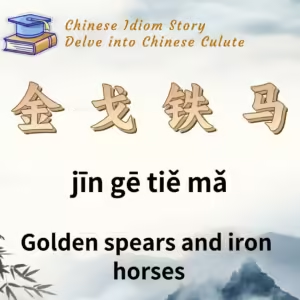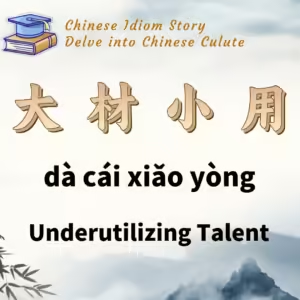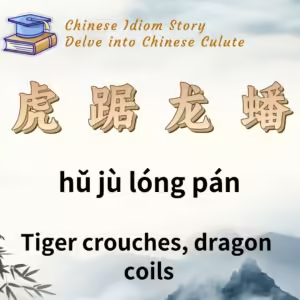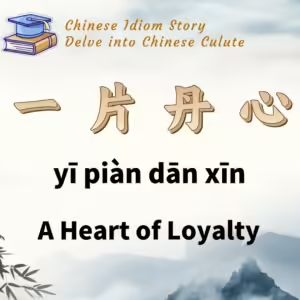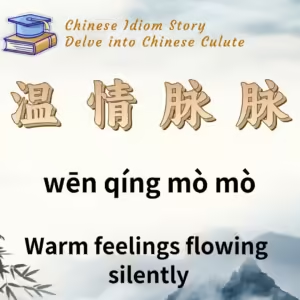
Chinese Idiom: 温情脉脉 (Wen Qing Mo Mo)
English Translation: Warm feelings flowing silently
pīn yīn: wēn qíng mò mò
Idiom Meaning: This idiom describes a state of deep emotional connection towards something, characterized by a desire to express those feelings through one’s demeanor or actions.
Historical Source: The idiom originates from the poem “Mo Yu Er” (摸鱼儿) by Xin Qiji during the Southern Song Dynasty.
Idiom Story:
In the spring of the sixth year of Emperor Xiaozong’s reign (1179), Xin Qiji, who was serving as the deputy transport commissioner in Hubei, was transferred to Hunan for the same position. His successor, Wang Zhengzhi, hosted a farewell banquet for him at a small hill pavilion. During the banquet, the withering scenes of late spring evoked Xin Qiji’s sentiments about the devastation of the country and sparked his discontent with the Song Dynasty’s policy of sacrificing land and paying tribute to maintain temporary peace. In this moment of reflection, he composed the poem.
The poem consists of 116 characters and is divided into two parts. The latter part includes the following lines:
“In the long palace, the appointed time has been missed again; the beautiful lady has once faced jealousy.
Even if one could buy Sima Xiangru’s poem with a fortune, to whom can this warm, silent feeling be told?
Do not dance, my lord.
Do you not see that both Yang Yuhuan and Zhao Feiyan have turned to dust?
Leisurely sorrow is the most bitter.
Do not lean on the precarious railing; the sunset is approaching,
At the place where the smoky willows break the heart.”
In this excerpt, the “long palace” refers to the Changmen Palace, where Lady Chen A’jiao was abandoned and wished to meet Emperor Wu of Han. Despite her beauty and wealth, she lost favor due to jealousy. Even if she could purchase Sima Xiangru’s literary works with a fortune, who could she confide in about her warm, unexpressed feelings?
Xin Qiji draws a parallel, cautioning that the complacency of the surrenderist faction (those who did not resist the Jin) is unfounded. The tragic endings of favored figures like Yang Yuhuan and Zhao Feiyan serve as warnings—they, too, became mere dust. The poet laments that a life of leisure brings the deepest sorrow and advises against gazing from high places at the sunset, as the enveloping smoke over the willow trees evokes heartache.
This poem reflects the profound emotions of nostalgia, loss, and the impermanence of beauty and favor, embodied in the idiom “温情脉脉.”

